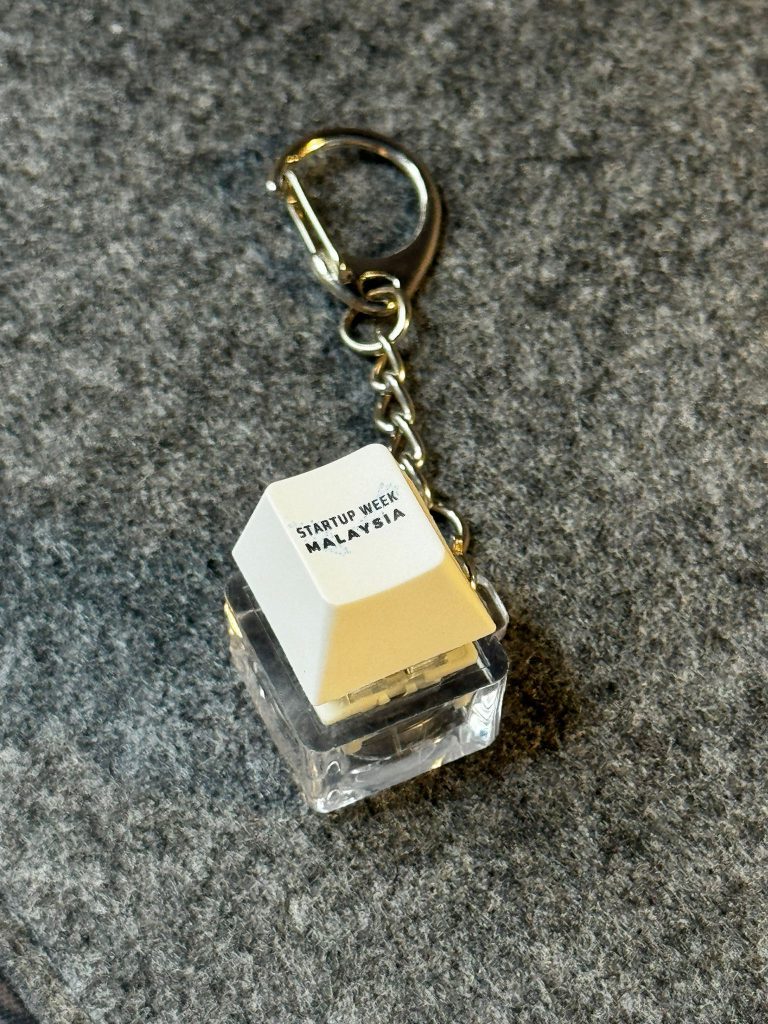Cradle, ZUS Coffee & Asia School of Business are linking up to support Startup Week M’sia in Nov
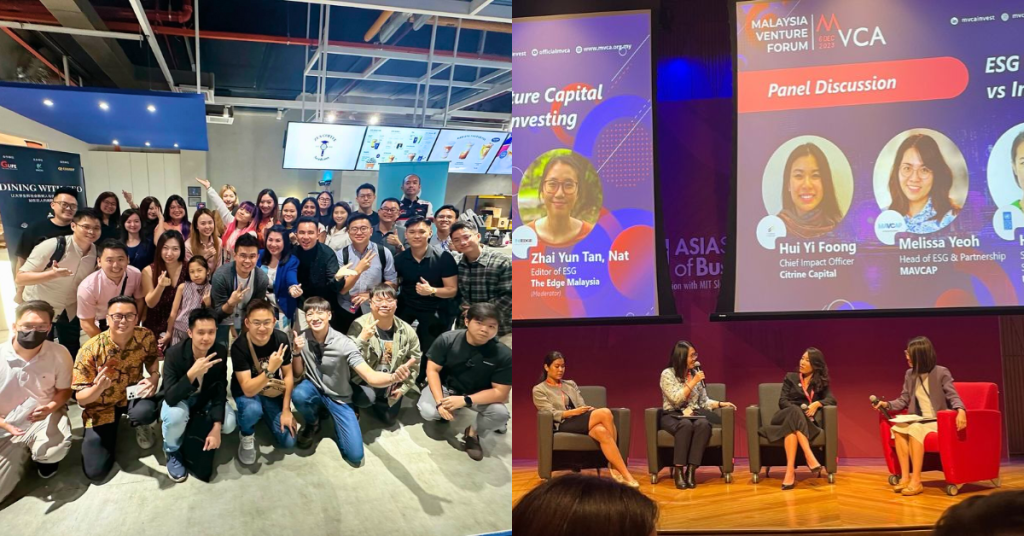
Startup founders in Malaysia, mark your calendars because here’s a week of events you don’t want to miss out on.
From November 18 to 24, Startup Week Malaysia (SWM) will be hosting a whole range of events at Asia School of Business (ASB), a joint host of the event. The week also comprises other jointly organised events at different locations.
Returning for the second year, Startup Week Malaysia brings together a diverse range of entrepreneurs, investors, and startup enthusiasts from all corners of the world.
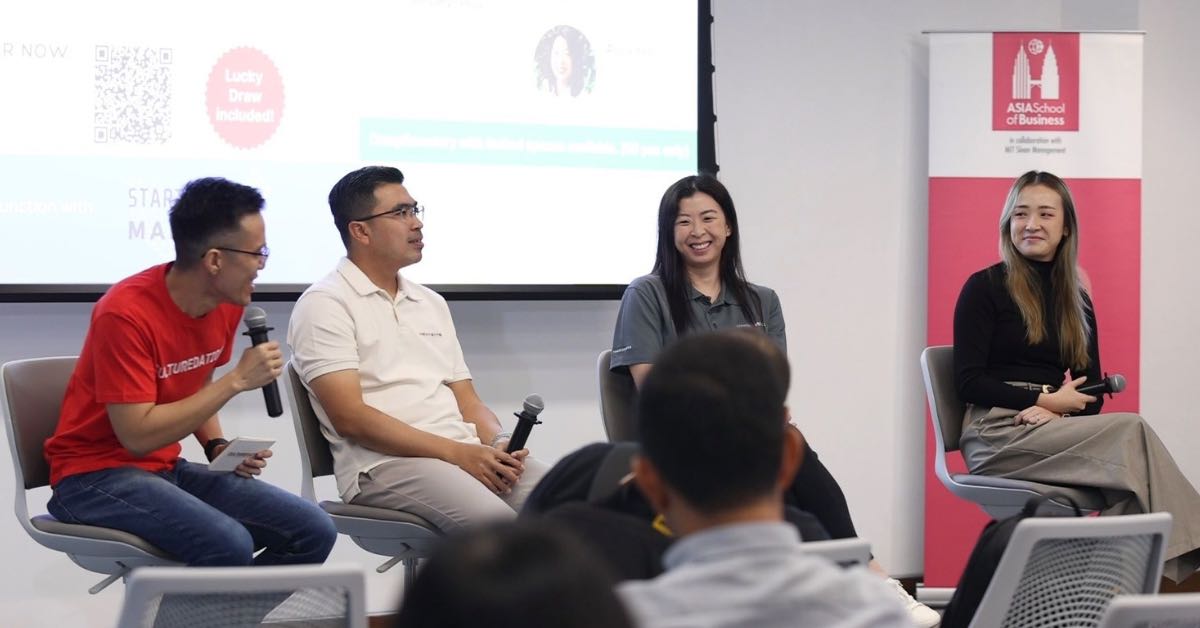
Daniel Lim, founder of one of Malaysia’s biggest entrepreneurship groups, NextUpAsia, and the organiser of Startup Week Malaysia shared, “This is a joint effort of many partners and especially ASB for hosting this event to nurture entrepreneurs and founders in Malaysia.”
Partners include notable names like UOB and ZUS Coffee, as well as up-and-coming businesses such as Penang’s Click & Brew Cafe who will be giving out 100 custom SWM keycap keychains, first come, first served.
Here are some highlighted events that you should consider joining.
1. TMRNOW AI
If you’re still ignoring AI, this is your sign to stop and actually learn how this new world of technology can change your business for the better.
One starred event that’s a part of Startup Week Malaysia is the TMRNOW AI conference, an event dedicated to exploring the transformative role of Generative AI in the business world.
This conference is designed for professionals eager to understand and harness the power of AI to drive innovation and efficiency in their organisations.
Date and time: November 19 (Tuesday); 9AM to 5PM
Price: RM300 for Standard tickets | RM149 for Early Bird tickets
Venue: Asia School of Business
2. ExitNOW
ExitNOW is a half-day event designed to demystify the process of business exits for both founders and investors in the startup ecosystem.
The lineup of speakers includes notable industry players such as:
- Yeoh Chen Chow, who co-founded Fave and sold it;
- Melissa Lim and Daniel Lui, legal experts who can provide essential guidance for entrepreneurs to protect themselves legally when structuring and selling businesses;
- Bikesh Lakhmichand, the Founder of 1337 Ventures who can share an investor’s perspective on what they look for when considering exits;
- Elain Lokeman, the founder Ata Plus who has insights from the equity crowdfunding (ECF) world and its implications for business exits.
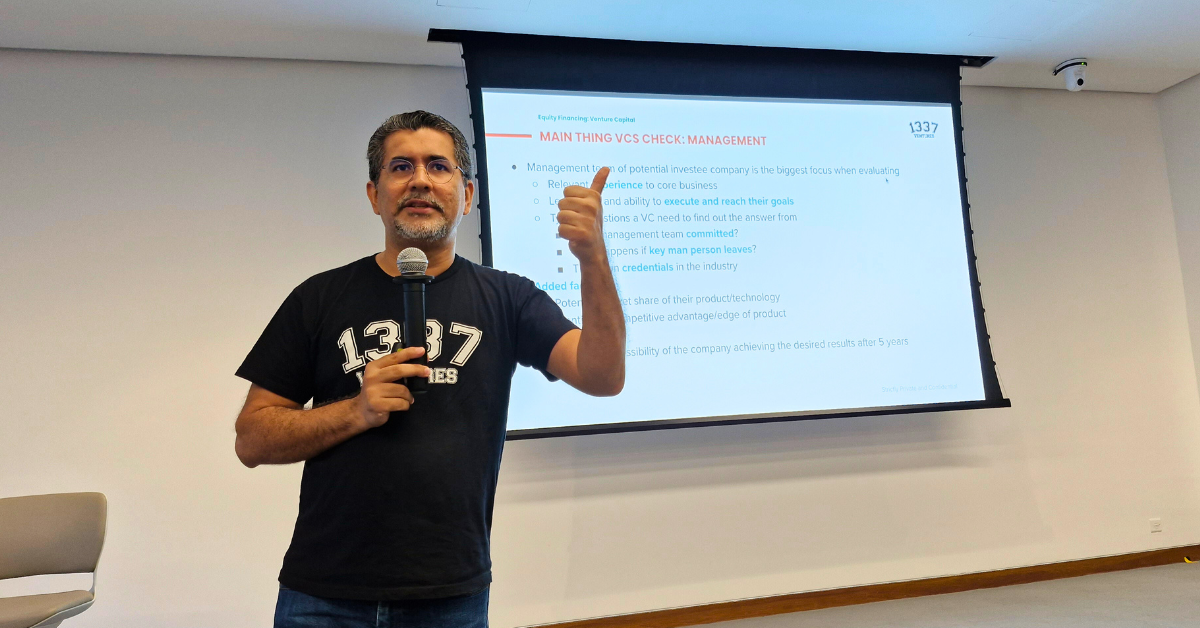
Date and time: November 20 (Wednesday), 2PM to 5PM
Price: RM80 for Standard tickets | RM50 for Early Bird tickets
Venue: Asia School of Business
3. Finding Balance in Partnership–Trust, Contract & Negotiations
Finding the right business partner can be very challenging. That’s why Startup Week Malaysia has an event tailored exclusively for that.
This is a panel session talking all about shareholding and partnerships, especially for F&B entrepreneurs who are navigating the often challenging terrain of partnerships with their investors and co-founders.
The speakers include:
- Jenifer Kuah, a successful serial restaurateur that boldly swapped her legal career for the dining and wine industry almost 20 years ago. She currently operates Studio Restaurant, Alta Cafe, Alta Pizza, and online store Food Foundry.
- Melissa Lim of Melissa Lim & Associates, who runs an SME and startup-friendly digital law firm that goes beyond legal matters by providing business advisory and support for the growth of the business.
- Theri Burhan, the founder of Set the Tables will be moderating the panel. Set the Tables is an independent food and drinks media created to inspire the hospitality community in Asia.

This event will also include a complementary legal toolkit tailored for F&B entrepreneurs about shareholding and partnerships.
Date and time: November 18 (Monday), 2.30PM to 4.30PM
Price: RM45
Venue: Asia School of Business
4. Fundraising Bootcamp in Kuala Lumpur
Organised by Taiwan-based startup AppWorks, this fundraising bootcamp will involve three parts. First is to know your investor and understand who you can raise from. The second part involves setting your terms and valuation.
Lastly, there’ll be a sharing session from a series B founder—Ting-Kuan Chen from FunNow.
FunNow is a B2C platform for consumers to book restaurants, massages, or fun activities in the city. Originating from Taiwan, they expanded to Malaysia in 2019 and acquired TableApp in 2020 and eatigo in 2023.
Date and Time: November 21 (Thursday), 10AM to 12PM
Price: Free
Venue: Asia School of Business
5. SEMAI X Social Enterprise Day 2024
If you’re involved in social enterprises, you’ll want to tune in to SEMAI X Social Enterprise Day 2024 (SE Day) happening on November 21.
SEMAI is Social Enterprise Malaysia Amplifying Impact, a collaboration effort driven by Purpose Malaysia and Chamber of Social Entrepreneur Development (CSED) Malaysia.
SE Day is organised to celebrate and advance the social enterprise ecosystem in Malaysia, bringing together changemakers, corporate leaders, and advocates passionate about creating social impact through sustainable business models.
Highlights of the day include a roundup and recap of social entrepreneurship during the year, a networking luncheon, and a corporate impact engagement session.
Date and time: November 21 (Thursday), 9AM to 4:30PM
Price: N/A
Venue: Asia School of Business
6. HERizon 2024: Beyond Definition
On the horizon of Startup Week Malaysia is HERizon, which is happening in December.
By fostering a community of support, inspiration, and collaboration, HERizon is a summit that aims to expand the horizons for women everywhere.
“HERizon, as part of the Startup Week Malaysia umbrella, believes we’re not lacking talent; we’re lacking the voice, representation, and platform to amplify our vision and promote local startups and solutions,” Jesyka Hiu, the organiser, said.
To do just that, this HERizon summit will be focusing on four pillars.
- Transforming ambition into impact
- Courage in leadership
- Changemakers
- A community of visionaries
Date and time: December 7, 9AM to 5PM
Venue: UOB Plaza 1 KL
Price: RM170 for All Access Pass | RM140 for Conference Pass
7. Invictus: Empowering Leaders, Igniting Change
Invictus is an exclusive, curated networking event designed to bring together current and aspiring leaders from diverse industries.
Interested participants will need to submit an application to join this intimate and curated gourmet dining experience. Applications will be reviewed on a rolling basis, and selected attendees will receive a formal invitation.
The event will involve a fireside chat with an esteemed guest speaker, as well as curated networking opportunities.
Date and time: November 27 (Wednesday), 12:30PM to 3:30PM
Price: RM249
Venue: Ignis Kuala Lumpur
8. Pickleball Meet

In a pickle about how to network with fellow entrepreneurs?
Well, here’s an event that might help, especially for the sporty ones. Held at Pickle World in PJ, it’s organised with notable entrepreneurs such as RenYi Chin, the founder of my Burger Lab, as well as former national badminton player Daphne Ng and pickleball coach Ian Ng.
Date and time: November 23 (Saturday), 8PM to 10PM
Price: RM30 for Standard tickets | RM25 for Early Bird tickets
Venue: Pickle World
Connecting the community
Entrepreneurship can be a lonely and isolating journey. But it doesn’t have to be.
With events like these hosted by the community for the community, startup founders in Malaysia can now better connect with not just each other but also to new information and insights that can supercharge their growth.
- Learn more about Startup Week Malaysia here.
- Read articles we’ve written about Startup Week Malaysia 2023 here.
Also Read: MDEC linked M’sian startups with Thailand’s tech scene & identified deals worth RM200M so far
Featured Image Credit: Kachi / Vulcan Post
SFF 2024: Ravi Menon introduces GFTN, here’s all you need to know.
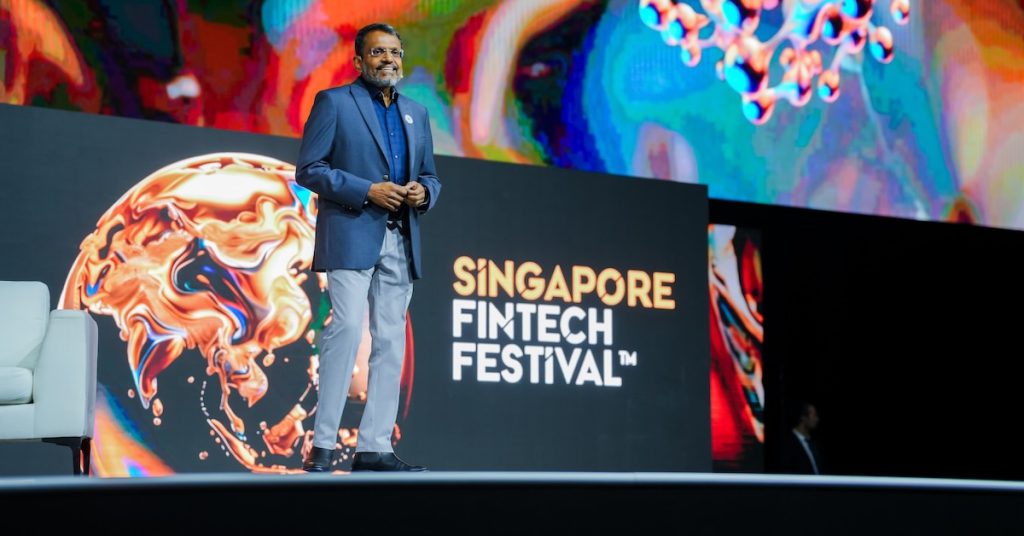
Following an announcement by the Monetary Authority of Singapore (MAS) a week prior, Ravi Menon took to the stage at the annual Singapore Fintech Festival today (November 6) to share more about the new Global Finance & Technology Network (GFTN) initiative.
GFTN aims to enhance Singapore’s position as a global fintech hub by fostering international collaboration and driving innovation in financial services. It will replace the not-for-profit Elevandi initiative, which organised and globalised the Singapore Fintech Festival (SFF).
The former managing director of MAS started his speech by stating that GFTN not only represents the
next phase of Singapore’s Fintech journey but also a milestone in the global Fintech movement.
Many details were shared during the keynote, so here’s a breakdown.
Why introduce GFTN?
According to Menon, GFTN’s focus on building connections and collaborations within the global fintech space derrives from three reasons, with the first being the need for more coherent policies and practices for new technologies to harness their benefits and manage costs.
These new technologies include asset tokenisation, climate tech, artificial intelligence and quantum computing, which are advancing rapidly and integrating into financial services.
“We need closer and more meaningful engagement between countries, between public and private sectors, and between finance and technology, to ensure that policies, regulations, and industry practices are coherent,” stated Menon.
Secondly, he explained that global platforms and “safe spaces” are needed to fuel more innovations amid a challenging geopolitical climate, and expressed GFTN’s commitment to become such a platform as a non-state, not-for-profit organisation.
As for the third and final reason, Menon pointed out that despite the increased amount of innovations in the Global South, gaps still remain in talent, infrastructure, capital, and policy—all of which needs to be addressed in a “concerted way.”
As such, GFTN will operate through four key pillars:
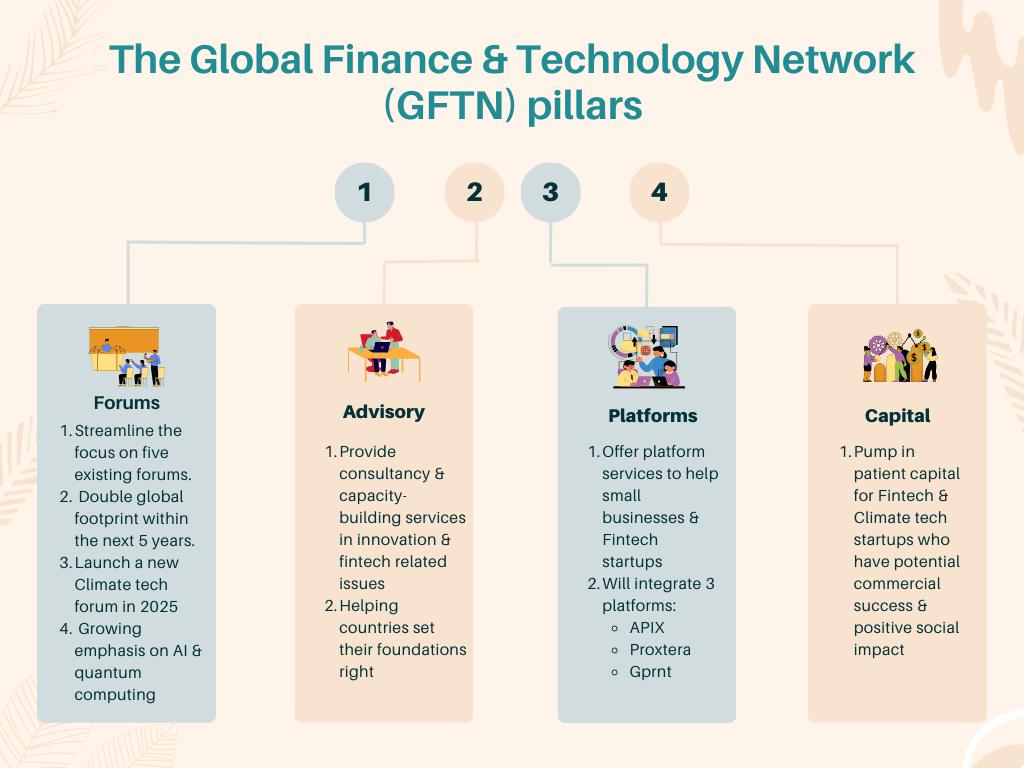
Concluding his speech, Menon expresses the organisation’s commitment to work closely with MAS, Singapore’s fintech community and global partners and authorities to achieve its purpose.
GFTN is here to serve a greater purpose, to harness the power of technology for a more efficient and resilient financial system; more inclusive financial services; expanded economic opportunities; and a sustainable planet.
We invite you to join us in our journey. Together, let us build a future where technology serves humanity, where innovation drives progress, and where finance is a force for good.
Ravi Menon, Chairman of the Global Finance & Technology Network (GFTN)
- Read Ravi Menon’s speech here.
- Read other articles we’ve written on Singapore’s government technology here.
Also Read: Confused about the new deepfake ban ahead of Singapore’s GE? Here’s a breakdown.
Featured Image Credit: Singapore Fintech Festival
This S’porean opened her 1st cafe with S$200k as a fresh grad, now owns 7 cafe brands
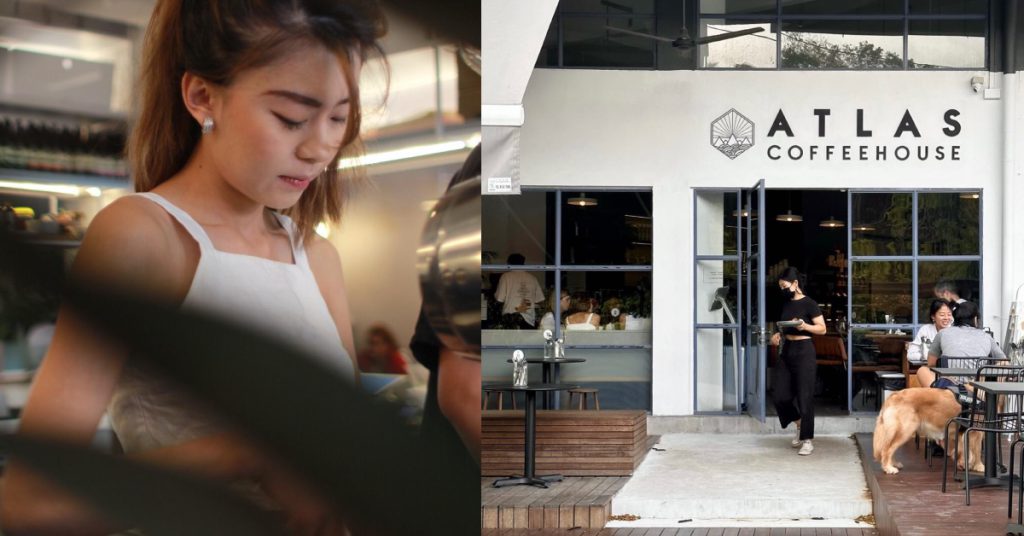
If you were to ask any Singaporean on the street what their first part-time job was, most would tell you that they worked in a cafe or for an F&B brand.
While many see that as an opportunity to earn extra pocket money, Daphne Goh, Managing Director of Atlas Coffeehouse, found comfort amid the hustle and bustle of lunch hours.
“Speciality coffee has always held a special place in my heart, and when I was given the opportunity to be a barista, it was all I wanted to do,” said Daphne.
Since then, she has grown a cafe empire in the past decade. However, with the cafe scene in Singapore becoming more saturated, what does it take for a brand to thrive?
She started her first cafe fresh out of university
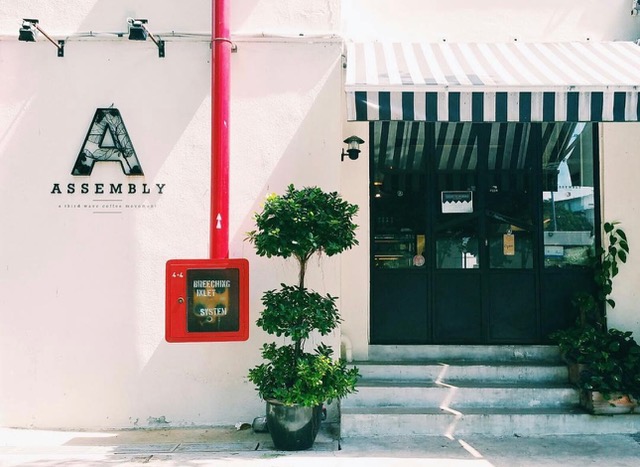
After graduating with a Bachelor’s in Business Management with a Marketing major, Daphne invested S$200,000 from her own savings, her husband, Lionel Ang, and her mum to open her first cafe in 2013—Assembly Coffee along Evans Road at Bukit Timah.
Unlike today, cafes and brunch were not the go-to options, and Assembly Coffee was competing with Mr Prata, who sold S$0.80 kopi and S$1 prata then.
As it was her first business venture, Daphne shared that she held extremely high expectations for herself and the business. “Everything had to be executed with precision and to perfection.”
However, that led to her setting unrealistic goals, self-doubt, and experiencing burnout.
“It was a steep learning curve, but [it is] one that I will not exchange for anything in the world because it has moulded me into who I am and where the business stands today,” said Daphne.
In the first six months after opening, the cafe worked to connect with residents at Bukit Timah, where they educated the public on their offerings. However, she had to close the cafe in 2016 when the same Mr Prata outlet won the bid to be the sole F&B brand in the compound.
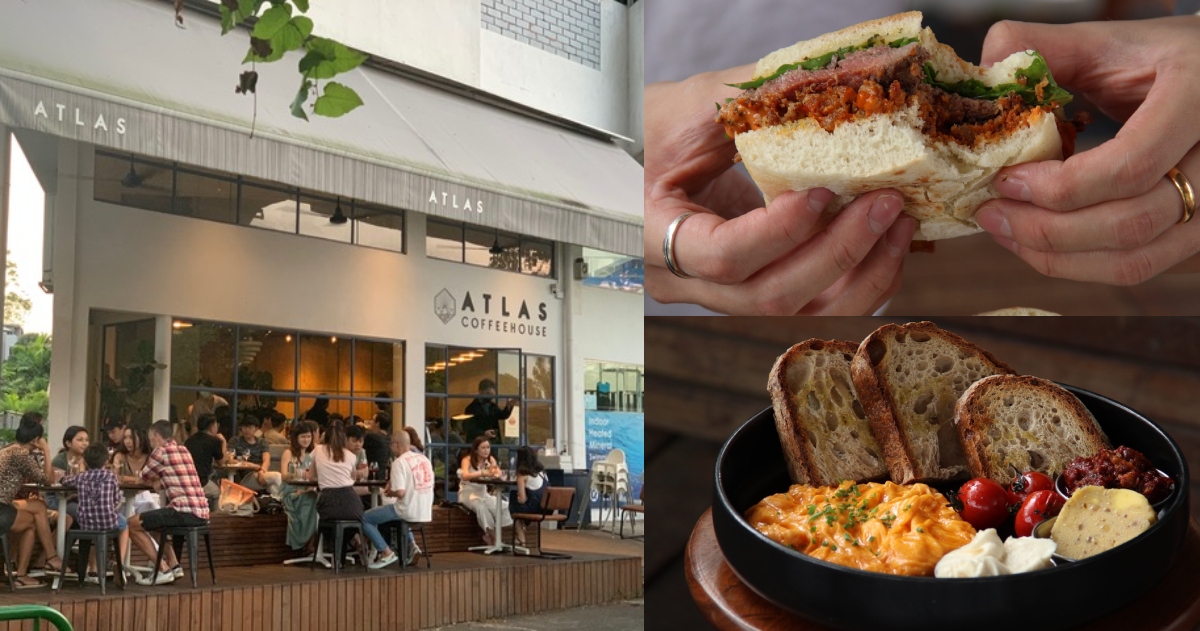
Despite the closure, it did not deter Daphne from opening another cafe—Atlas Coffeehouse—in the same year, just down the road from where Assembly Coffee used to be.
With a bigger space and a proper kitchen, she and her team expanded their food offerings, curated according to their customers’ feedback.
Our goal is to be a place where you wouldn’t hesitate to bring your grandparents out for brunch because there is always something for everyone. Food like ours should be simple. Nothing fancy. Approachable and satisfying.
Daphne Goh, Managing Director of Atlas Coffeehouse
Building a cafe empire
Since then, Daphne went on to grow her empire of cafe concepts and coffee businesses each year, and if you haven’t noticed, all the cafes’ names are celestial and explorer-themed.
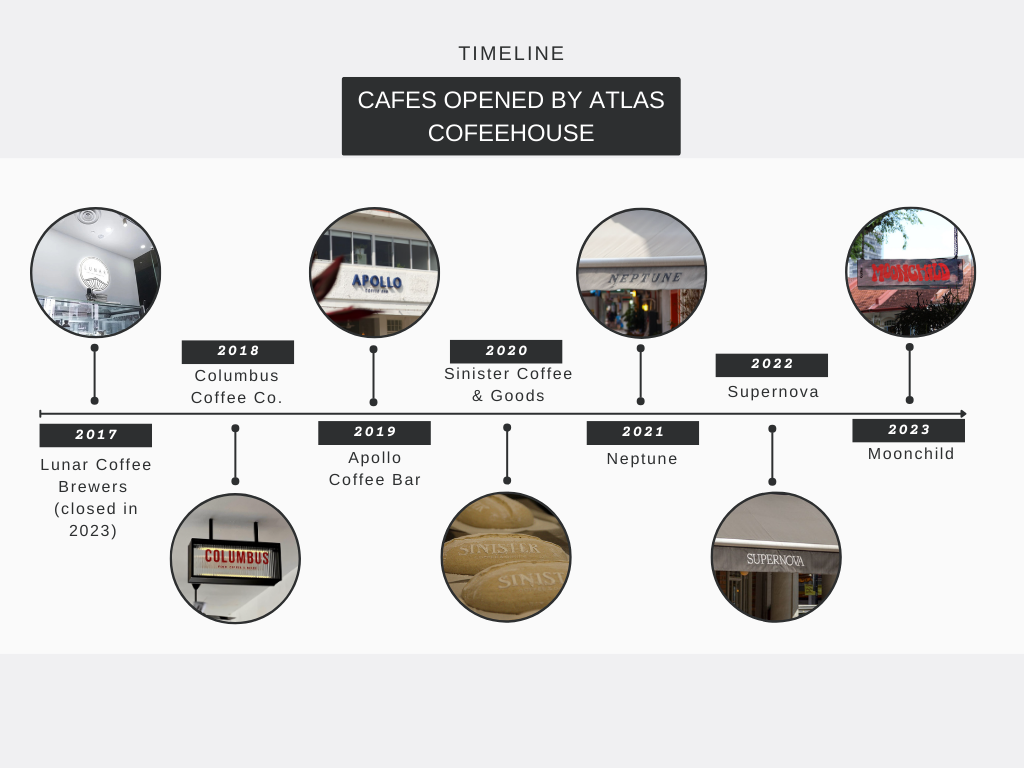
As she introduced new brands each year, the F&B industry was heavily affected during the COVID-19 pandemic. Many businesses were restricted to takeaways, and some brands, unfortunately, had to lay off staff and close their shutters.
Fortunately for Daphne, she shared that she could keep her staff during that tumultuous period, even giving them year-end bonuses despite the economic climate.
However, the pandemic also doubled their monthly rental, leaving her no choice but to close Lunar Coffee Brewers, located at Shenton Way, in June 2023.
“[The] key lesson learnt is always to have a backup plan and to be 10 steps ahead. The doubling of rent was expected, especially after COVID. Closure was expected,” explained Daphne.
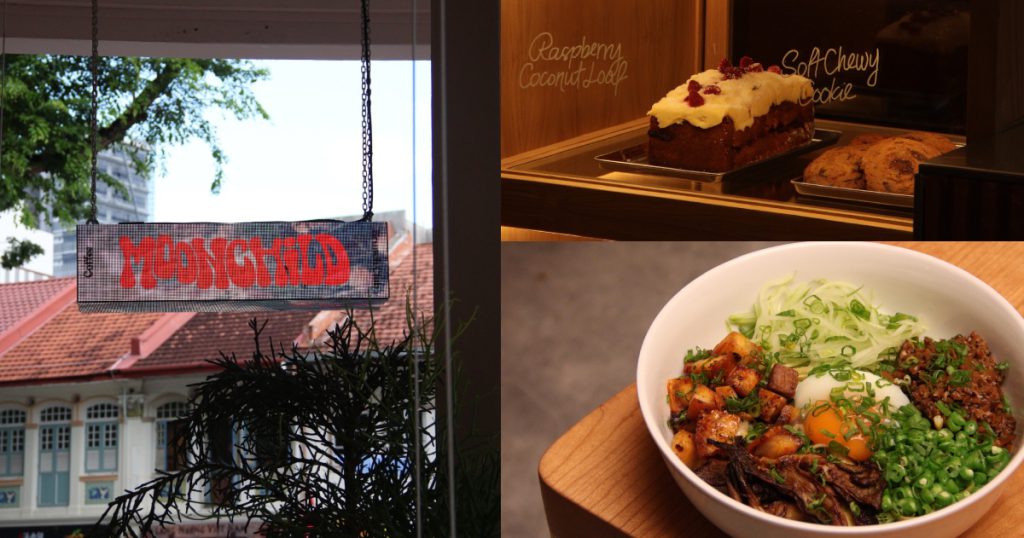
She added that each closure and opening is “unique to each entity and its location”, to which the team determines if there is a market gap that they could fill.
While the company opted for “the safer route” in positioning its brands, in the case of Moonchild, they wanted it to be a “young, trendy and cool” version of Atlas Coffeehouse. “It’s almost as if Atlas is the mother of Moonchild: Young and trendy, yet reliable and approachable,” shared Daphne.
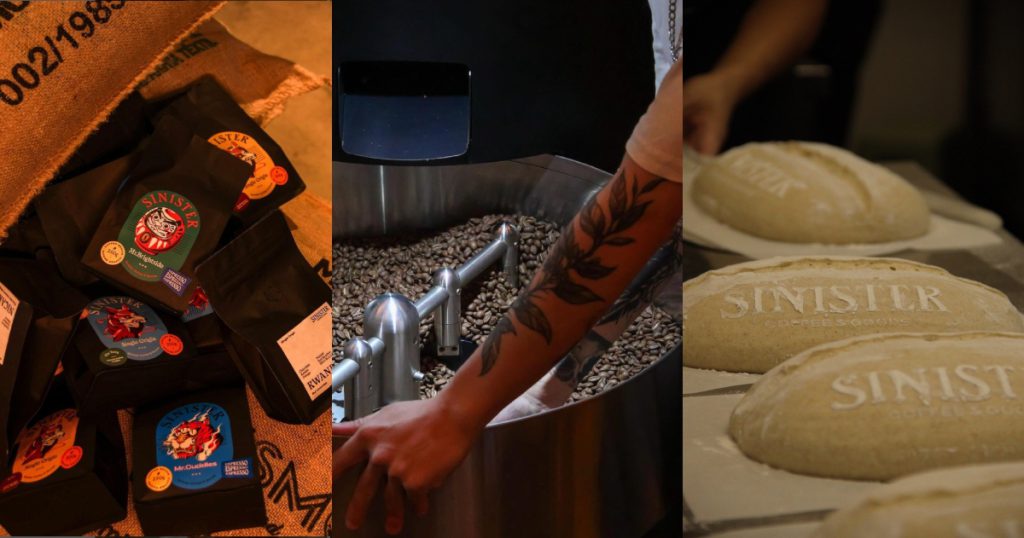
The team also launched their retail and merchandise brand, Sinister Coffee & Goods, in 2021 to add another dimension to the cafe experience.
In addition to offering baked goods such as sourdough loaves, whole cakes, brownies and cookies, the brand sells its whole coffee beans wholesale and offers coffee subscription programmes.
Slow and steady wins the race
At this point, you might question why Daphne would open multiple brands instead of focusing on growing one.
One thing led to another and it has been a decade. Each brand is unique to its location which therefore has a different menu. We’d like to think that because we have been around for a while now, people will eventually find out if the project is under the same group.
While it is easier to market as ‘esteemed by Atlas Coffeehouse’, we prefer to work with a blank canvas for each project so that we can have the creative freedom to curate, without the restriction of being associated to an existing brand, even if the brand is ours.
Daphne Goh, Managing Director of Atlas Coffeehouse
That said, there were moments when Daphne doubted herself when a new concept was experiencing slow pick-up rates in a new neighbourhood and added that they chose to “bite the bullet” and not pay for advertising.
Besides promoting their cafes on social media, the business relies on word of mouth to gain traction in the neighbourhood, which is old school, but to Daphne, it is a “slow but steady and sustainable climb”.
Daphne also pointed out that hiring talent was difficult due to the stigma placed on the industry as “the last resort”. Not only that, she said that her “painfully strict” and “hard to be around” persona made her unapproachable—so much so that it was difficult to find people to take a shift as she was “so scary”.
The sad truth is a cliche. You can’t please everybody and it’s ok to be at 80%. I’ve learnt to settle for 80% at 100% of the time than 100%, at 80% of the time.
Daphne Goh, Managing Director of Atlas Coffeehouse
Aside from changing her leadership style, she focused on nurturing employees who stayed and promoting them internally, as it allows people passionate about the industry like herself to keep their jobs and sustain the business.
As the Singaporean cafe industry becomes increasingly competitive and saturated, Daphne expressed her commitment to continue putting her employees first to sustain the business, adding that without them, the business will be unable to flourish.
Also Read: Why this 80 Y/O Japanese coffee house made S’pore its home after moving here in 1979
Featured Image Credit: Atlas Coffeehouse
Meet the “uncles” behind The Beer People Co., S’pore’s 1st Asian-focused craft beer bar
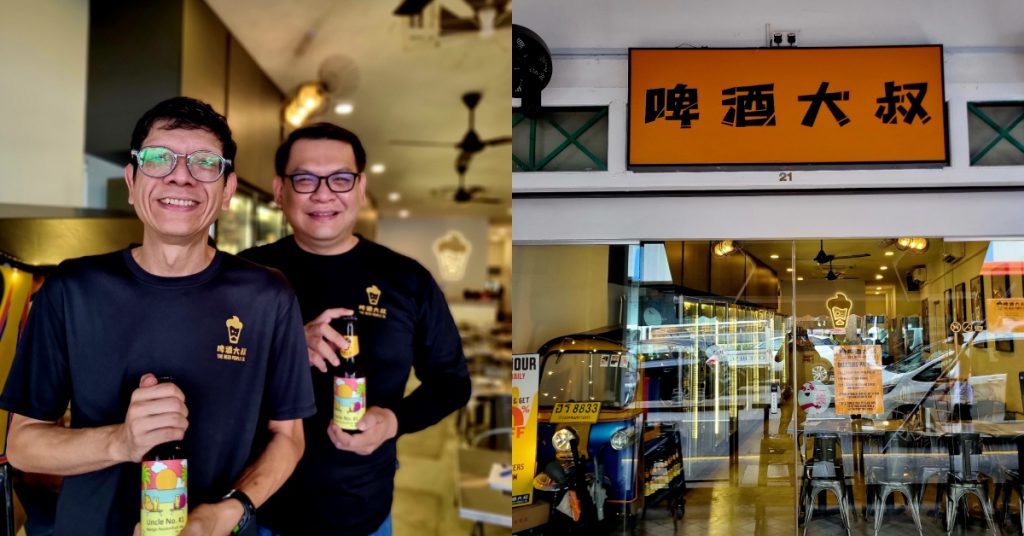
Farokh Fan, 46, and Craig Chia, 43, first met at a reservist camp. Never would they imagine that they would become business partners and open Singapore’s first and only Asian-focused craft beer bar, The Beer People Co.
As to how that idea came about? Well, it’s rather apt that it was conceived during a casual night of drinks in 2018, and only manifested after a visit to a craft beer chain, Beer Auntie (啤酒阿姨), in Shanghai, China, that same year.
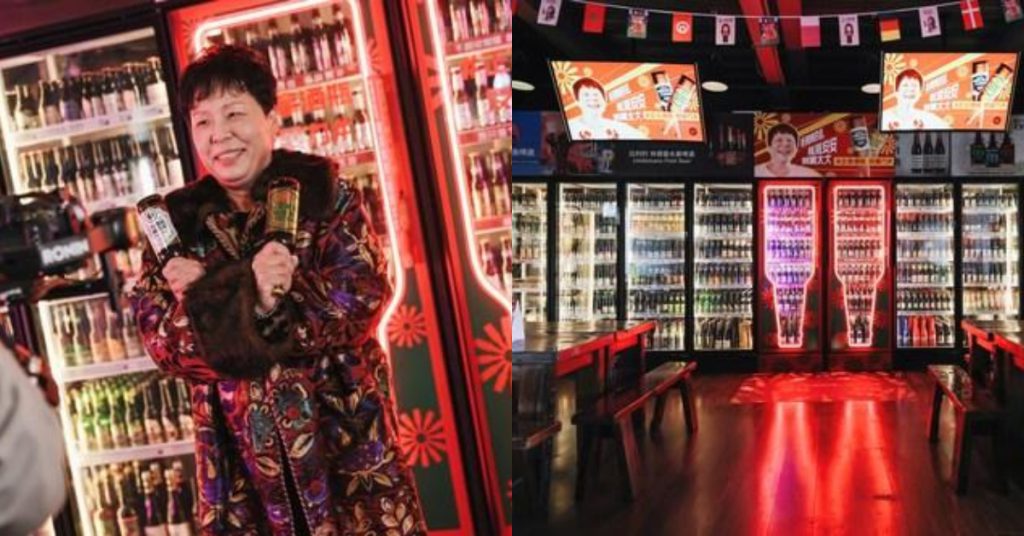
“We were captivated by the striking visual of chillers lined with an endless variety of beers and the relaxed, unpretentious atmosphere where people could gather, enjoy quality brews, and engage in conversation,” shared Farokh.
This ignited a desire in both Farokh and Craig to bring a similar concept to Singapore with a twist—to spotlight Asian craft beers. Together with a silent investor, the duo invested a six-figure sum to launch The Beer People Co. in April 2023 at Jalan Besar.
The Beer People Co. is their first F&B venture
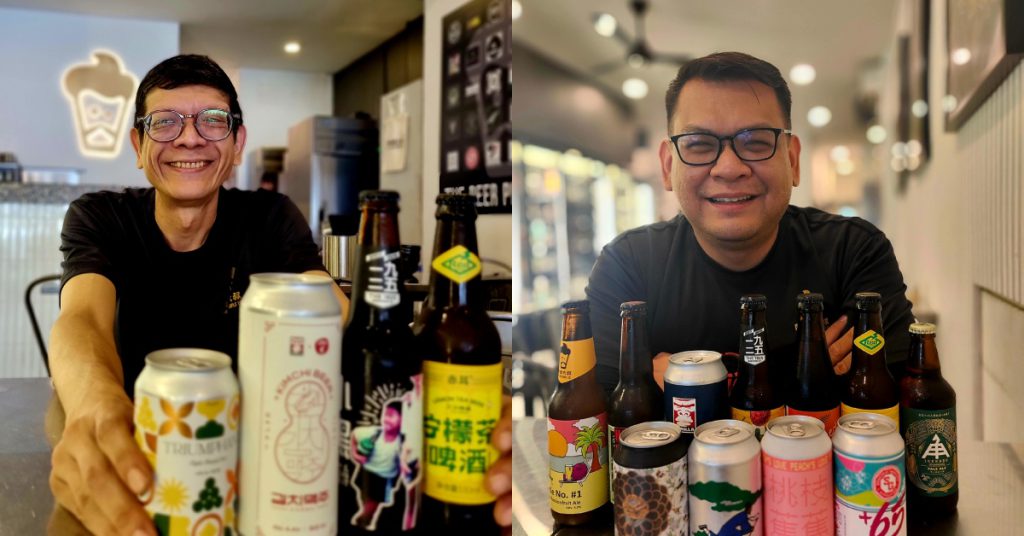
Despite being novices in the F&B industry, both founders bring valuable skillsets to the table. Farokh, who oversees the brand’s merchandising and marketing, has over 20 years of such experience under his belt.
Craig, who manages the shop’s operations and finances, has a background in Civil Engineering and has spent years in finance and Singapore’s public service sector.
The company solely focuses on selling packaged Asian craft beers—serving them in bottles and cans—while steering away from draught beer.
According to Farokh, craft beers are produced in small batches using high-quality ingredients, making it difficult to compete with mass-market brands’ prices; opting for bottled and canned beers instead of on-tap was “a conscious decision.”
He acknowledges the misconception that packaged beers are “less fresh” or of “inferior quality” compared to tap beers, but also pointed out that the intense competition for tap space can make operations difficult and prolong customers’ wait times.
In addition, many factors contribute to the beer’s quality, such as storage conditions and distribution practices, which the company has considered with the fridges in its store.
“Our commitment to quality control ensures that our packaged beers maintain freshness and flavour, often rivalling or surpassing tap offerings,” stated Farokh.
The business also partnered with Nummun Thai Kitchen to provide their customers with authentic Thai cuisine that “complements the beer experience”.
“We didn’t want to be just another beer spot with mediocre food,” Craig added.
Farokh chimed in, sharing that the partnership allows both businesses to broaden their reach and tap into each other’s customer base.
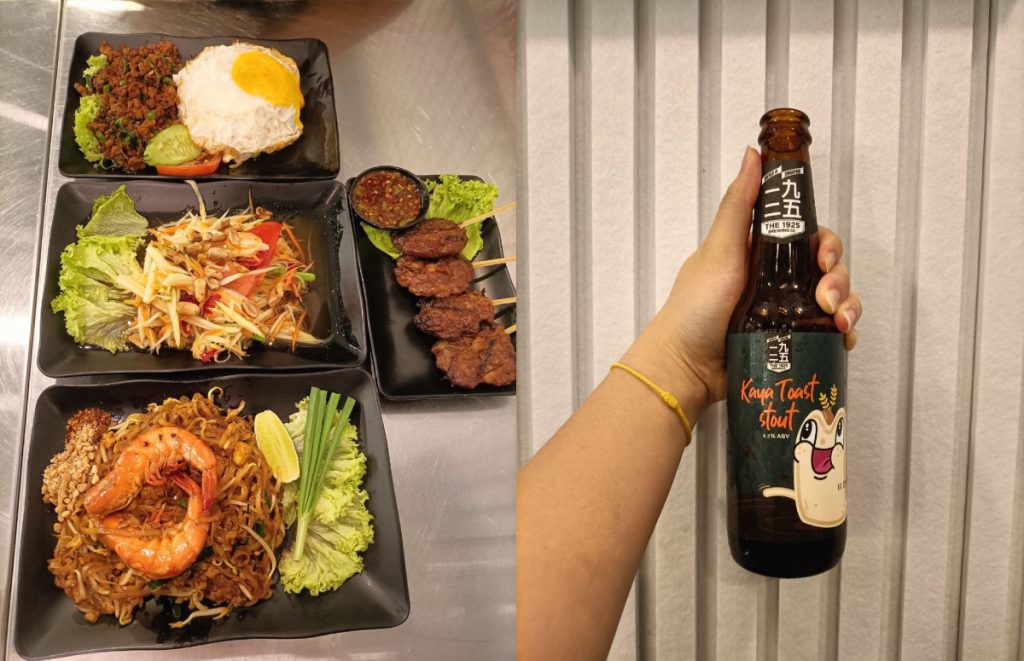
Sticking to their niche
Currently, The Beer People Co. offers over 150 beers from more than 20 Asian breweries, including those from China, Japan, South Korea, and Vietnam. Products from over eight Singaporean breweries, with localised flavours, such as a Kueh Salat rice lager and a Kaya Toast stout, are also sold.
A 330ml bottle or can of beer is sold for around S$12-S$13 each, which is slightly higher than the average. Farokh explained that many of their customers might not be familiar with craft beer and its prices, so they aim to keep their prices competitive.
The store also engages with customers by offering personalised “beer tours”, where they recommend selections based on their preferences. “We believe there’s a craft beer for everyone, and we take pride in helping our customers discover theirs,” he added.
That said, the number of distributors they could collaborate with was limited due to their niche.
While they shared that they received numerous offers to feature Western breweries, they stuck to their speciality and focused on building close working relationships with local distributors and breweries.
“We prioritise breweries that align with our commitment to showcasing the Asian craft beer culture. We look for brands that offer distinctive and high-quality brews, focusing on innovation and authenticity,” explained Farokh.
The company has also worked to diversify its offerings to include meads, ciders, and sake, which has allowed it to appeal to a broader audience while “staying true” to its brand identity.
Adapting to ensure steady growth
Since its inception, The Beer People Co. has established itself in Singapore’s beer scene. According to Farokh, the brand is currently in a “unique position” where distributors actively seek them out.
The company also celebrated its first anniversary by partnering with Singaporean brewery The 1925 Brewing Co. to release its own beer, Uncle Number 1 (which was also one of the beers we tried during our visit).
Their growth allowed their year-to-date sales to double since last year, eventually leading them to achieve operational profitability earlier this year.
That said, Farokh and Craig maintain a cautious approach to the business, citing the cyclical downturns in Singapore’s F&B scene, and will focus on adapting their business to the market to ensure steady growth.
Looking forward, both founders expressed their commitment to consistently offer a rotating selection of new and unique beers to ensure that repeat customers can always explore different beers, regardless of their preferred style.
In the long term, The Beer People Co. will focus on expanding its partnerships with Asian breweries and exploring opportunities to collaborate on exclusive craft beer releases similar to their Uncle No. 1 brew.
“We’re excited to continue growing our range while maintaining our commitment to providing a curated and personalised beer experience,” added Farokh.
- Learn more about The Beer People here.
- Read other articles we’ve written about Singaporean startups here.
Also Read: Brewerkz pioneered craft beer in S’pore since 1997, and it’s now on an upcycling revolution
Featured Image Credit: The Beer People Co.
